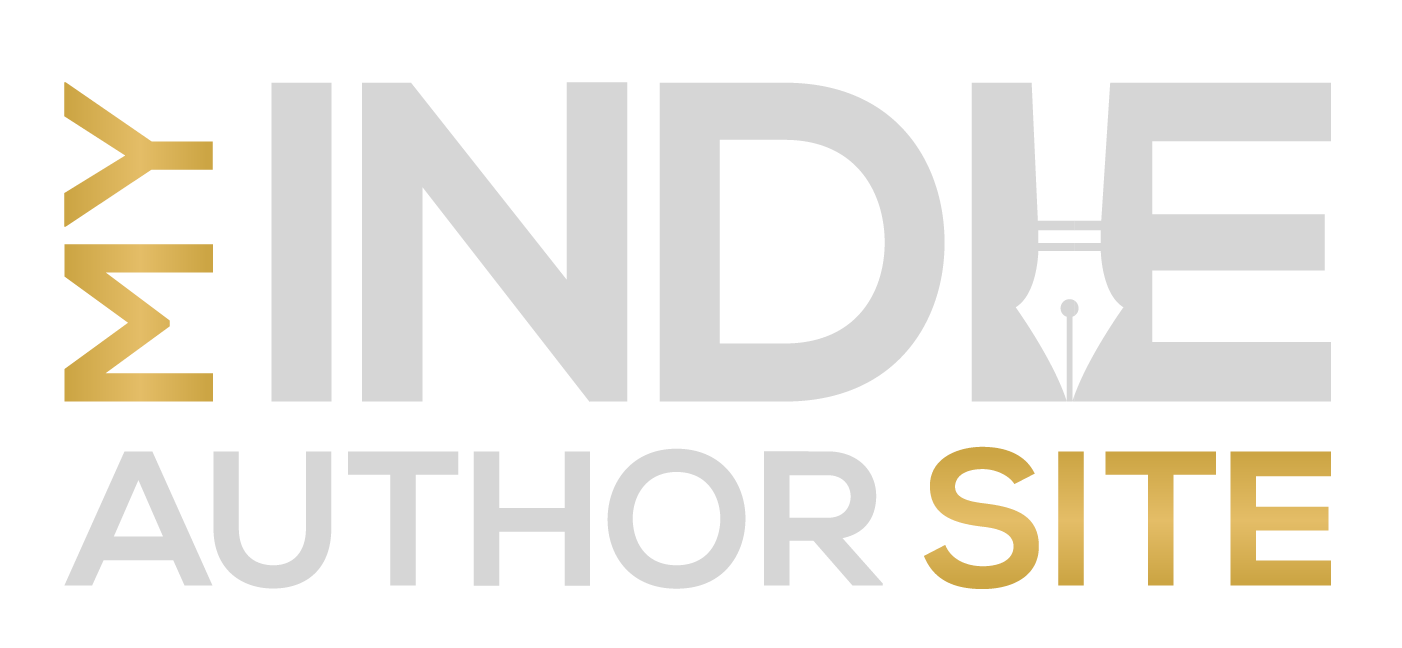Imagine you’ve just finished your latest novel, filled with your heart and soul. You’re eager to share it with everyone. That’s where your author website comes in. It’s your online hub to connect with readers and show off your work.
Do you remember walking into a bookstore and seeing your favorite author’s book out front? That’s what your author site can feel like. It’s always open to readers worldwide. It’s your digital home, building your author platform and brand online.
This guide will show you how to make a website that looks amazing and will help boost your writing career. It doesn’t matter if you’re a new or experienced author. We’ll cover everything you need to know about creating a great author website design.
Key Takeaways:
- An author website is essential for building your online presence
- Your site serves as a hub for all your book marketing efforts
- A well-designed website helps attract new readers and engage existing fans
- Your author website is crucial for defining your brand as a writer
- SEO is an ongoing task. Always check and update your content strategy
The Importance of an Author Website
Having a strong online presence is key for authors. Your website should be the core of your marketing efforts, showing off your work and connecting you with readers. Let’s see why a well-designed author site is vital for your writing career.
Building Your Online Presence
Your author website is your digital home base. It’s where people, publishers, and media can find you anytime. By adding writer website essentials, you build a professional image that goes beyond your books. Your site becomes a central spot for everything you do, from book launches to blog posts.
Connecting with Readers and Fans
An author website helps bridge the gap between you and your audience. It’s a place for fans to learn about your latest work, read special content, and talk to you directly. This connection builds loyalty and can make casual readers into big fans.
Showcasing Your Work and Brand
Your website is ideal for showing off your books and achievements. It’s a key tool for promoting your books, offering a single spot for all your titles. Here’s how different parts of your site help your brand:
| Website Element | Branding Impact |
|---|---|
| Author Bio | Establishes your unique voice and story |
| Book Covers | Creates visual recognition |
| Blog Posts | Showcases your expertise and writing style |
| Media Kit | Provides professional resources for promotions |
Remember, your website is more than just a digital business card. It’s a powerful tool in your marketing, helping you build a lasting relationship with your audience and secure your spot in the literary world.
Essential Elements of an Author Website Design
Creating effective author sites that turn readers into fans needs careful planning. Your website is your digital home, showing off your work and connecting with your audience. Let’s look at the key elements that make author websites sell.
A clear identity is key. Your homepage should have your name big and bold, with a catchy tagline that sums up your brand. Adding a professional headshot lets readers see your face, building a personal connection.
Show off your latest book cover on the homepage. This catches visitors’ eyes and shows off your work. For converting author websites, easy navigation is crucial. Include these must-have pages:
- About page with your bio
- Dedicated pages for each book or series
- Contact form for reader engagement
Good author sites answer important questions visitors might have:
| Question | Where to Address It |
|---|---|
| Who are you? | About page |
| What have you published? | Book pages |
| Any upcoming releases? | Homepage or News section |
| How to connect on social media? | Footer or sidebar |
| How to contact you? | Contact page |
Remember, author websites that sell focus on user experience. Keep your design clean, your content engaging, and your navigation easy to use. By adding these elements, you’ll make a strong online presence that draws in and keeps readers.
Choosing the Right Platform for Your Author Site
Finding the right platform for your author website is key. It affects your site’s design and how it’s built. Let’s look at some top choices that follow best practices for web design.
WordPress: The Versatile Option
WordPress runs a big part of the web. It’s flexible and has many themes and plugins. It’s perfect if you want total control over your site’s look and function.
SquareSpace: Ease of Use and Aesthetics
SquareSpace is known for its stylish designs and easy use. It’s ideal if you focus on looks and don’t like dealing with website tech stuff.
Ghost: A New Open-Source Contender
Ghost is becoming popular with authors. It has a simple, clean way of blogging and publishing. If you’re looking for a new, modern platform, Ghost is something to consider.
My Indie Author Site: Tailored for Authors
This platform is made just for independent authors. It’s easy to use and has features for writers’ specific needs. It’s a good choice if you want a site designed for authors.
| Platform | Best For | Pricing | Ease of Use |
|---|---|---|---|
| WordPress | Customization | Free to $25/month | Moderate |
| SquareSpace | Design | $12 to $40/month | Easy |
| Ghost | Blogging | $9 to $199/month | Moderate |
| My Indie Author Site (WordPress) | Marketing for Authors | $15 to $35/month | Very Easy |
The best platform for you depends on your needs, tech skills, and budget. Think about these when choosing.
Selecting the Perfect Author Domain Name
Your domain name is key to your author branding. It’s where readers find you and your work. Choose a domain that reflects your publishing name, not just your book titles. This helps build your personal brand online and supports your career.
If yourname.com is taken, don’t stress. Here are some other options:
- yournameauthor.com
- yournamebooks.com
- yournamewriter.com
These choices keep your name prominent, boosting your author brand. If .com is not available, look at .net or .me. The main goal is to have a domain that clearly shows you’re an author.
Your domain does more than just show your website’s address. It’s a key part of your online marketing. It makes it easy for readers to find you and builds trust. A professional domain shows you’re dedicated to your writing and connecting with readers.
“Your domain name is your first handshake with potential readers in the digital world. Make it count.”
Choosing the right domain sets the stage for strong author branding. This step is crucial for your online presence and helps you stand out in the literary world.
Author Website Design: Key Components and Layout
Building an effective author website takes careful planning and attention to detail. It’s your digital hub for your writing career. It showcases your work and connects you with readers. Let’s look at the key parts that make up a great author website.
Homepage Essentials
Your homepage is the first thing people see. It should have your name and a catchy tagline that shows your writing style. Add a professional headshot and your latest book cover to catch their eye. This makes your website memorable and strengthens your brand.
About Page: Telling Your Story
The about page lets you share your author journey. Write a bio that shows your achievements and your personality. It’s important for connecting with your readers.
Book Pages: Showcasing Your Work
Give each book or series its own page. Add high-quality cover images, descriptions, and links to buy the book. Organize these pages well to make it easy for readers to find what they like.
Contact Information and Forms
Make it easy for people to get in touch with you. Add a contact form and your social media links. Consider an email newsletter signup to grow your audience. These features make your website better and keep your fans engaged.
| Website Component | Purpose | Key Elements |
|---|---|---|
| Homepage | Create first impression | Name, tagline, headshot, latest book |
| About Page | Share author’s story | Bio, background, writing journey |
| Book Pages | Showcase publications | Cover images, descriptions, buy links |
| Contact Section | Facilitate communication | Contact form, social media, newsletter signup |
Optimizing Your Author Site for Search Engines
Boosting your online presence is key for authors. By using SEO strategies, you can reach more readers. A good content strategy is essential for this.
Begin by finding keywords related to your books and genre. Use these keywords in your website’s content, like book descriptions and blog posts. This makes your site easier for search engines to find.
Make sure your content is engaging and valuable. Include things like book excerpts, writing tips, or industry news. Updating your site often tells search engines it’s active and important.
Make your website easy to navigate. Use clear URLs, add alt text to images, and make sure it loads fast on all devices. These details help your site rank better in search engines.
| SEO Element | Importance | Implementation Tips |
|---|---|---|
| Keywords | High | Research and use genre-specific terms |
| Content Quality | Very High | Create valuable, engaging posts regularly |
| Site Structure | Medium | Use clear navigation and descriptive URLs |
| Mobile Optimization | High | Ensure responsive design for all devices |
SEO is an ongoing task. Always check and update your content strategy to keep improving your online visibility. This effort will help more people find your work online.
Integrating Social Media and Newsletter Sign-ups
Your author website is a key place to connect with readers. Let’s look at how to make it better with social media and email strategies.
Connecting Your Social Profiles
Link your social media accounts to your website. Add buttons for Facebook, Twitter, Instagram, and other platforms you use. This makes it easy for readers to follow you everywhere. It’s a big part of your marketing strategy.
Building Your Email List
Set up a newsletter sign-up form on your site. Put it in a spot like your sidebar or footer. Tell people why they should subscribe, like getting exclusive content or early book news. Growing your email list is important for talking directly to your readers.
Creating Effective Lead Magnets
Give something valuable for email addresses. This could be a free short story, a sneak peek from your next book, or writing tips. These lead magnets make people want to join your list. They’re great for building your author platform.
Your website can also help with selling your work. Consider adding a shop section to sell books or merchandise directly to fans. This mix of marketing and sales can really help your author business.
Professional Help: When to Consider a Web Designer
Creating a stunning author website can be tough. Many authors try web design on their own, but sometimes, it’s wise to get help from pros. Professional web designers know how to make author sites stand out with their web design strategies.
They focus on user experience for author sites, making sure your site catches the eye. A skilled designer can make a site that mirrors your brand and writing style. They ensure your site looks good on all devices with responsive web design for authors.
This focus on detail can really help increase your online visibility and engage more readers.
| DIY Website | Professional Designer |
|---|---|
| Limited design options | Custom, unique design |
| Basic user experience | Optimized user journey |
| Generic templates | Brand-specific layout |
| Time-consuming for authors | Efficient, expert execution |
Think about hiring a pro if you’re stuck with tech stuff or your site isn’t getting the attention you want. Many designers focus on author sites and know what writers need. They make navigation easy, highlight your books well, and add mailing list sign-ups smoothly.
“A professional web designer can transform your online presence, making it as captivating as your writing.”
Your website is often the first thing readers see of you. Spending on professional design can lead to more book sales and a stronger author platform. It’s not just about looks; it’s about building a powerful tool for your writing career.
Final Thoughts
Making your perfect author website is a key step in your writing career. It lets you show off your work and connect with readers. Think of your site as a powerful tool for marketing your books and building your brand.
A good content strategy is crucial for keeping visitors interested and turning them into fans. Every part of your site, from the homepage to the book pages, should show off your unique style. By focusing on making your site better, you can turn visitors into newsletter subscribers and book buyers.
Whether you build your site yourself or hire a pro, investing in a quality author website is worth it. It’s your constant promoter, always working to help your writing career. So, take the step, make your author website, and see how it opens new doors for your writing journey.


